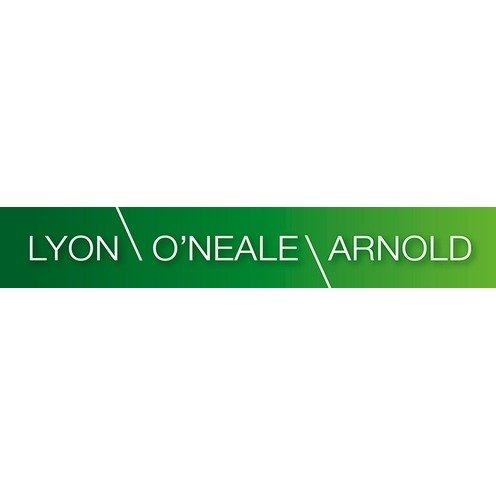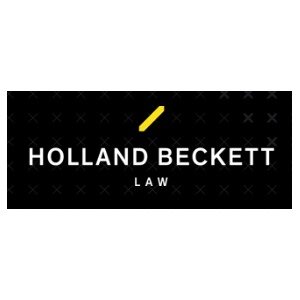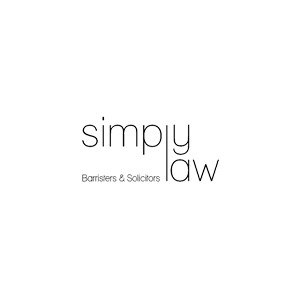Best Conveyancing Lawyers in Tauranga
Share your needs with us, get contacted by law firms.
Free. Takes 2 min.
Free Guide to Hiring a Real Estate Lawyer
List of the best lawyers in Tauranga, New Zealand
About Conveyancing Law in Tauranga, New Zealand
Conveyancing is the legal process involved in buying, selling, or transferring ownership of real estate or property. In Tauranga - one of New Zealand’s fastest-growing cities - conveyancing plays a vital role in ensuring smooth property transactions, whether you are a first-time home buyer, an investor, or someone selling their home. Licensed conveyancers and lawyers help manage the paperwork, ensure compliance with local and national regulations, and protect your interests throughout the process.
Why You May Need a Lawyer
There are many situations in which engaging a lawyer or licensed conveyancer is necessary. Some of the most common include purchasing your first home, selling a residential or commercial property, transferring property due to divorce or relationship separation, inheriting real estate, refinancing a mortgage, or resolving disputes about property boundaries. A lawyer can perform essential tasks such as reviewing Sale and Purchase Agreements, checking for issues with titles or encumbrances, ensuring all local council regulations are met, and assisting with KiwiSaver withdrawals for first-home purchases.
Local Laws Overview
Property transactions in Tauranga must comply with both national New Zealand law and regulations set by the Tauranga City Council and Bay of Plenty Regional Council. Key legislation includes the Land Transfer Act 2017, the Property Law Act 2007, and the Overseas Investment Act 2005 if foreign buyers are involved. Local planning rules, zoning, consent requirements, and relationship property rules under the Property (Relationships) Act 1976 may also be relevant. Lawyers in Tauranga are familiar with local development plans, subdivision approvals, and unique aspects such as Māori land ownership and coastal property considerations.
Frequently Asked Questions
What does a conveyancer or property lawyer do?
A conveyancer or property lawyer manages the legal aspects of buying, selling, or transferring property. This includes preparing and reviewing contracts, conducting title searches, managing settlement, and lodging documents with the Land Information New Zealand (LINZ).
Is it mandatory to use a lawyer for conveyancing in Tauranga?
While it is not legally required to have a lawyer, it is highly recommended due to the complexity of property transactions and the legal risks involved. Most banks and lenders require a qualified lawyer to manage the settlement process.
How long does the conveyancing process take?
The timeframe varies, but a straightforward transaction generally takes between four and six weeks. Complications such as title issues or delayed finance can affect this timeline.
What costs are involved in conveyancing?
Costs typically include legal fees, council rates adjustments, Land Information New Zealand (LINZ) registration fees, and potential disbursements such as LIM reports. Request a full fee breakdown from your lawyer before proceeding.
What is a LIM report?
A Land Information Memorandum (LIM) report provides details from the Tauranga City Council about the property, including consents, hazards, and outstanding compliance issues. It is an essential due diligence step before purchase.
Can I use my KiwiSaver for buying a home in Tauranga?
Yes, many first-home buyers withdraw funds from their KiwiSaver account for their property deposit. A lawyer helps you comply with all legal requirements for KiwiSaver withdrawals.
What happens if there are issues with the property title?
Your lawyer will check the title for issues such as easements, covenants, or caveats. If problems are found, they will advise you on the implications and how to resolve them before proceeding with the purchase or sale.
Are there any special considerations for buying newly built homes and subdivisions?
Yes. You must ensure that the property has received code compliance certificates and that all planning and zoning regulations have been followed. Your lawyer will review these documents and any developer agreements.
Does buying property in a trust or company require special legal steps?
Yes. There are additional legal requirements for purchases through a trust or company, including signing authorities and compliance with the Anti-Money Laundering and Countering Financing of Terrorism Act 2009. Your lawyer will manage this process.
How do I handle property transactions if I am overseas?
If you are overseas, you will need to arrange certified identification and sign documents, possibly through a New Zealand consulate. Your lawyer will guide you through the requirements for remote transactions.
Additional Resources
- Land Information New Zealand (LINZ) for title searches and registrations - Tauranga City Council for LIM reports, planning, and consents - New Zealand Law Society for finding a qualified lawyer - Citizens Advice Bureau Tauranga for community legal information - Property Law Section - New Zealand Law Society for conveyancing standards and best practices - Bay of Plenty Regional Council for regional zoning and environmental information
Next Steps
If you are planning to buy, sell, or transfer property in Tauranga, it is important to seek legal guidance early in the process. Make a list of your questions or concerns, gather all relevant documents (such as sale agreements or property titles), and contact a qualified conveyancing lawyer. They will assess your situation, explain your legal options, and guide you through every step to ensure your property transaction is secure and compliant with all laws. Acting proactively can help you avoid costly mistakes and gain peace of mind during your property dealings.
Lawzana helps you find the best lawyers and law firms in Tauranga through a curated and pre-screened list of qualified legal professionals. Our platform offers rankings and detailed profiles of attorneys and law firms, allowing you to compare based on practice areas, including Conveyancing, experience, and client feedback.
Each profile includes a description of the firm's areas of practice, client reviews, team members and partners, year of establishment, spoken languages, office locations, contact information, social media presence, and any published articles or resources. Most firms on our platform speak English and are experienced in both local and international legal matters.
Get a quote from top-rated law firms in Tauranga, New Zealand — quickly, securely, and without unnecessary hassle.
Disclaimer:
The information provided on this page is for general informational purposes only and does not constitute legal advice. While we strive to ensure the accuracy and relevance of the content, legal information may change over time, and interpretations of the law can vary. You should always consult with a qualified legal professional for advice specific to your situation.
We disclaim all liability for actions taken or not taken based on the content of this page. If you believe any information is incorrect or outdated, please contact us, and we will review and update it where appropriate.

















